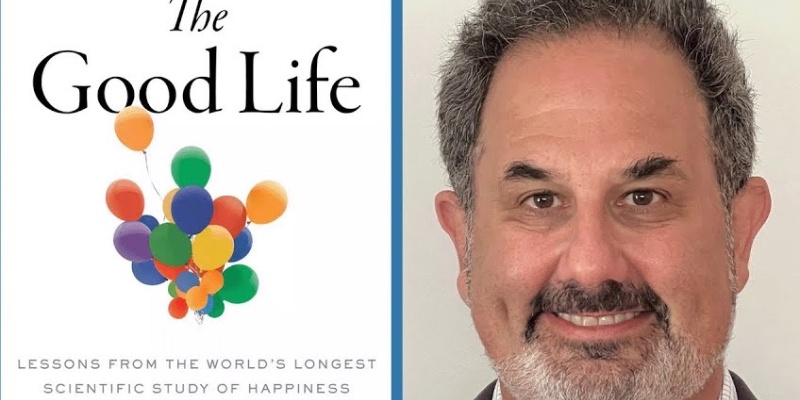On this edition of The Literary Life, what makes for a happy life, a fulfilling life? Robert Waldinger and Mark Schulz, the directors of the Harvard Study of Adult Development, have just published The Good Life: Life Lessons from the World’s Longest Scientific Study on Happiness. Their invaluable insights emerge from the revealing personal stories of hundreds of participants in the Harvard study that forms the basis of this new important book.
From the episode:
Marc Schulz: At the beginning we were talking a little bit about the particular challenges of each generation and the challenges of this generation. I think, uh, very much have to do with the role of social media and the new communication technologies. So, you know, there are other things that are important I don’t wanna leave out as well.
There’s uncertainty about the future, especially our environmental future and the climate change. There’s uncertainty about the, you know, whether the economy will grow or continue to stagnate. So there are real physical concerns that the younger generation has, but the thing that’s different in this generation is partly these social comparisons that are fueled by the media availability. And it’s ubiquitous. We carry it around. It’s not just something we turn on.
The messaging of those distractions has become more powerful with social media and the presence of technologies in our lives. So you talked before about, you know, it’s no longer folks down the street that we might compare ourselves. It’s to the lifestyle that Beyoncé lives and the things that Beyoncé has. And the way I talk about it is that we used to be able to go out, you know, to the street, look down the block, and just make sure that the cars that the neighbors had were similar to our cars.
But now we know what everyone has and it’s not an objective picture of what everyone has. It’s their curated show online of their best moments. So it’s not just Beyoncé, it’s the people you went to school with are putting online a kind of curated narrative about themselves that shows them at their most successful moment.
So that’s a very hard thing to compete with. We are creatures of comparison. And those comparisons have become quite pernicious. They’re particularly challenging for younger people. Those comparisons, particularly challenges for, for young girls and for women as well. So I think that’s part of the challenge. And then there are changes in our society that have continued to evolve, have been happening for a long time. Um, we’re a mobile society. Many of us are, are moved from where we grew up. So our friends that we went to school with, our families that were important sources of support are no longer present in our lives. And that means by, almost by definition, we’re paying attention to other messages and new people in our lives, and they’re good things about that. I think enriching things about that, but it also means that some of the old ways of socializing have become less important to folks across time.



























































